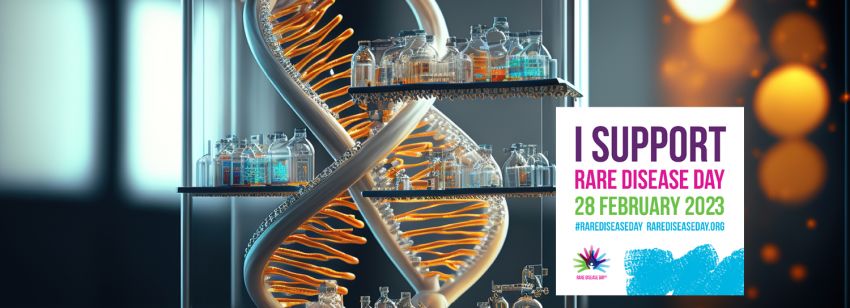ATMPs for rare diseases
The long-awaited cure or a costly risk?
The majority of ATMPs approved to date in Germany are orphan drugs and therefore represent therapeutic options specifically for patients with rare diseases. ATMPs are subdivided into three categories: Gene therapeutics, somatic cell therapeutics and biotechnologically processed tissue products. Currently, the most prominent type are gene therapies, i.e., therapies whose mode of action is based on the introduction of nucleic acids via gene transfer.
- For example, the gene therapy Libmeldy® for the treatment of metachromatic leukodystrophy (MLD) has been approved in Germany since 2021. MLD is a rare, inherited metabolic disease that causes severe nerve damage in children and quickly leads to death. The possibility to conduct a sibling analysis within the studies was of substantial value for the manufacturer: a successfully demonstrated dramatic effect led to a major added benefit for Libmeldy® in a subpopulation. Although the one-time costs with > 2 mio € are comparatively high, according to the impartial Chairman of the German Federal Joint Committee (Gemeinsamer Bundesausschuss, G-BA) Prof. Hecken, "there is now at least an option that allows the affected children to live a less impaired life."
- Another future ex vivo gene therapy is proclaimed to functionally cure for the first time with just one treatment in patients with sickle cell disease (SCD) as well as transfusion-dependent beta-thalassemia (TDT), according to the pharmaceutical manufacturers' statements. The drug in question is exagamglogenic autotemcel (exa-cel), which is the first CRISPR-Cas9-based therapy to genetically edit a patient's own stem cells in such a way that the previously significantly impaired function of the erythrocytes is permanently restored. However, the gene therapy Zynteglo® was already approved in the EU for the indication TDT in June 2019. After the G-BA benefit assessment for Zynteglo® had been completed, the German payers did not want to cover the almost 1.6 million euros demanded. In the end, the arbitration board set a price that was more than half lower than the demanded price. As a result, marketing was withdrawn from the German market, first temporarily and then completely. It remains to be seen what further path exa-cel will now take in the TDT (and SCD).
- As another example within the heterogeneous product class of gene therapies, CAR-T (chimeric antigen receptor) cell therapies have been increasingly establishing themselves on the German market since their first approval in 2018. In oncology, such innovations are usually first marketed for late lines of therapy, i.e., for patients who do not respond or no longer respond to conventional treatments. One example is the treatment of multiple myeloma, a rare cancer of the bone marrow: despite numerous chemotherapeutic and immunological therapy options, the recurrence rate is high, and the disease cannot be cured. Interestingly, two CAR-T cell therapies, Abecma® and Carvykti®, have already been approved for this disease. Abecma® has already been on the market since Jan 2022, while Carvykti® entered the market one year later on Feb 15th, 2023. It remains to be seen how the new competition will affect the care context.
Due to the various interests of the stakeholders and decision makers involved, as well as the creation of presumably far-reaching and meaningful initial precedents, the discussion about the current and future situation of ATMPs is highly polarized. SKC monitors, analyzes, and anticipates the proceedings of current and future ATMPs, including the implementations of the relevant success and risk factors directly into client's day-to-day consultations. Comprehensive and predictive strategic planning and risk assessment in all phases from R&D to price negotiations is essential for overall success here.
Sources:
- Verordnung des Europäischen Parlaments und des Rates (EG Nr. 1394/2007)
- Lauer-Taxe® (Stand 15.02.2023)
- Pressemitteilung des G-BA vom 04.11.2021
- Vertex Press Release vom 11.06.2021
- G-BA Verfahren 684, 506, 781 und 924
- PEI: ATMP: Ankunft in der Versorgung
- EMA: Multiple myeloma
- G-BA Eintrag zu Carvykti


